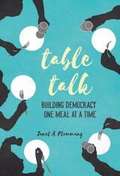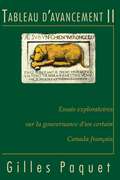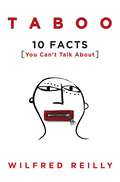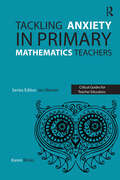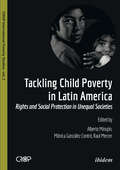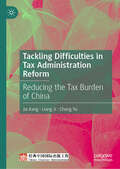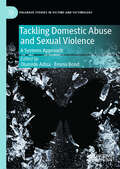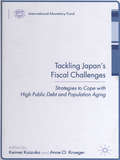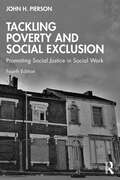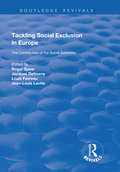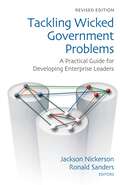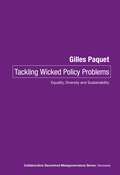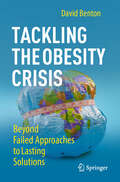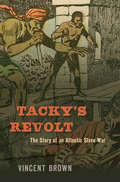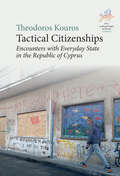- Table View
- List View
Tabby's First Quest (Kitten Kingdom #1)
by Mia BellFor fans of Puppy Princess, this new chapter book series brings together two consistent favorites, cats and royalty, in a fun action-packed adventure!Princess Tabby is no scaredy-cat! Princess Tabby loves playing in the palace with her brothers and reading about brave kitty heroes. When Tabby and her brothers accidentally give away a magic scroll to the evil King Gorgonzola, they must leave the safety of their castle to get it back. But reading about adventures and going on a real quest are two very different things. Tabby's never been afraid before, but suddenly she doesn't feel so brave. Will she be able to find her courage and save Mewtopia?
Table Talk: Building Democracy One Meal at a Time
by Janet A. FlammangEtiquette books insist that we never discuss politics during a meal. In Table Talk , Janet A. Flammang offers a polite rebuttal, presenting vivid firsthand accounts of people's lives at the table to show how mealtimes can teach us the conversational give-and-take foundational to democracy. Delving into the ground rules about listening, sharing, and respect that we obey when we break bread, Flammang shows how conversations and table activities represent occasions for developing our civil selves. If there are cultural differences over practices--who should speak, what behavior is acceptable, what topics are off limits, how to resolve conflict--our exposure to the making, enforcement, and breaking of these rules offers a daily dose of political awareness and growth. Political table talk provides a forum to practice the conversational skills upon which civil society depends. It also ignites the feelings of respect, trust, and empathy that undergird the idea of a common good that is fundamental to the democratic process.
Tableau d'avancement II: Essais exploratoires sur la gouvernance d'un certain Canada français
by Gilles PaquetCe Tableau d'avancement II fait suite à un premier volume (Tableau d'avancement I publié en 2008) qui examinait rétrospectivement l'enlisement de certains chefs politiques, de certains intellectuels influents, et de certaines institutions du Canada français au cours de la dernière moitié du 20e siècle. Tableau d'avancement II prend plutôt un regard prospectif sur la gouvernance du Canada français : pour exposer les cosmologies dominantes qui distordent nos manières de voir, pour illustrer comment des outillages inédits sont nécessaires dans des dossiers précis, pour supputer sur quoi la dérive de la société québécoise pourrait déboucher quand on s'interroge sur son avenir 50 ans après la Révolution tranquille, et pour s'attaquer aux problèmes himalayens de l'innovation, de l'incertitude et de la collaboration auxquels la gouvernance du Canada français va devoir faire face au 21e siècle.
Tableau d'avancement III: Pour une diaspora canadienne-française antifragile
by Gilles PaquetCet ouvrage est le troisième volet d’une trilogie sur le Canada français. Dans un premier volet, j’ai jeté un coup d’œil rétrospectif sur la période avant la Révolution tranquille; dans le second, j’ai décrit le monde qui a émergé autour de la Révolution tranquille. Ce troisième volet invite le lecteur à se mobiliser pour aider à construire une diaspora canadienne-française antifragile. Délibérément indéterministe, cet ouvrage invite à mettre en place un système d’enquête pour développer des formes de gouverne inédites mieux ajustées à la réalité diasporique et évolutionnaire du Canada français, et davantage focalisées sur la poursuite d’objectifs de vitalité communautaire plutôt que sur un repli vers l’autoconservation linguistique. La première partie de l’ouvrage passe en revue l’outillage mental nécessaire pour construire la sorte de gouvernance baroque dont le Canada français, comme bien des entités post-modernes, a besoin : une gouvernance eunomique – c’est-à-dire qui convient – et antifragile – c’est-à-dire qui accroît sa robustesse à proportion qu’elle est soumise à des pressions accrues. La seconde partie de l’ouvrage fait un peu de rétroprospective – comme dirait Jacques Lesourne. Elle cherche à comprendre comment les divers acteurs et porteurs de projets au Canada français ont interagi dans le passé récent au plan socio-économique, impolitique et civique, comment ils ont engendré des pathologies de gouvernance, et comment ils nous ont révélé un peu de leur âme au fil des circonstances – tout cela pour aider à circonscrire les scénarios plausibles. La troisième partie met en garde contre certaines forces obscures qui promettent de ralentir le processus d’apprentissage collectif sur lequel le système d’enquête que je propose doit aboutir : parlementeries, technocratie, idole de l’adjudication, désinformation et corruption – autant de forces que le citoyen en tant que producteur de gouvernance va devoir neutraliser autant que possible. La conclusion propose une feuille de route vers une diaspora canadienne-française qui voudrait continuer à progresser, à se transformer de manière créatrice et fructueuse, tout en préservant une identité migrante.
Tableau d'avancement IV: Un Canada français à ré-inventer
by Gilles PaquetCet ouvrage est le dernier volet d'une tétralogie sur le Canada français qui, dans un premier temps, a jeté un coup d'œil sur l'après-seconde guerre mondiale, puis, dans un second temps, sur la période autour de la « Révolution tranquille ». Le troisième tome a fait un relevé de divers aspects du Canada français dont on devra tenir compte si on veut développer un avenir pour la diaspora canadienne-française. Voilà qui préparait à aborder de front, dans le tome IV, le défi de réinventer le Canada français en tant que diaspora canadienne française antifragile. Au cinquantième anniversaire de la rupture de 1967 qui avait marqué une césure entre le Québec et le reste du Canada français dans la grande unité du Canada français, l'objectif de ce travail est clair : débroussailler et bien faire comprendre sur quelles réalités on pourrait réinventer le Canada français à partir de Nouveaux États Généraux. La première portion de l'ouvrage fait l'inventaire des grands paramètres (y compris le bijuridisme) avec lesquels il faudra composer dans cette aventure. La première partie de l'ouvrage passe en revue le terrain des opérations en portant une attention particulière aux mythes et fausses représentations qui ont toujours cours, ainsi qu'aux difficultés d'apprentissage aigües qui sont susceptibles de créer des blocages aux projets de renaissance du Canada français qu'on pourrait envisager. La seconde partie propose d'autres éléments incontournables dans tout projet de ré-imagination d'un Canada français modernisé parce qu'il devra passer par des paris sur la gouvernance culturelle et la polyphonie. En conclusion on propose un plan d'attaque qui pourrait bien réussir à moderniser la diaspora canadienne-française, et même à relustrer le vocable 'Canada français' et à lui redonner ses extraordinaires lettres de noblesse, si seulement on voulait s'en donner un peu la peine.
Tabloid Terror: War, Culture, and Geopolitics
by Francois DebrixThis book analyzes the methods, effects, and mechanisms by which international relations reach the US citizen. Deftly dissecting the interrelationships of national identity formation, corporate ‘news and opinion’ dissemination, and the quasi-academic apparatus of war justification - focusing on the Bush administration's exploitation of the fear and insecurity caused by 9/11 and how this has manifested itself in the US media (especially the tabloid populist media). Debrix explains how all serve to defend and produce state power and develops a model of tabloidized international relations, where responses are both organized by, and supportive of, a strong centralized US government. The field of International Relations sorely needs such analytics, in so far as it explains how people in their everyday lives relate to transnational issues. Tabloid Terror critically covers a wide variety of US popular culture from the Internet to Fox News; analyzes diverse authors as Julia Kristeva, J.G. Ballard and Robert Kaplan and takes into account renowned international relations interlocutors as Don Imus, Bill O’Reilly, and Tommy Franks.
Taboo Memories, Diasporic Voices
by Ella ShohatTaboo Memories, Diasporic Voices brings together for the first time a selection of trailblazing essays by Ella Shohat, an internationally renowned theorist of postcolonial and cultural studies of Iraqi-Jewish background. Written over the past two decades, these twelve essays--some classic, some less known, some new--trace a powerful intellectual trajectory as Shohat rigorously teases out the consequences of a deep critique of Eurocentric epistemology, whether to rethink feminism through race, nationalism through ethnicity, or colonialism through sexuality. Shohat's critical method boldly transcends disciplinary and geographical boundaries. She explores such issues as the relations between ethnic studies and area studies, the paradoxical repercussions for audio-visual media of the "graven images" taboo, the allegorization of race through the refiguring of Cleopatra, the allure of imperial popular culture, and the gender politics of medical technologies. She also examines the resistant poetics of exile and displacement; the staging of historical memory through the commemorations of the two 1492s, the anomalies of the "national" in Zionist discourse, the implications of the hyphen in the concept "Arab-Jew," and the translation of the debates on orientalism and postcolonialism across geographies. Taboo Memories, Diasporic Voices not only illuminates many of the concerns that have animated the study of cultural politics over the past two decades; it also points toward new scholarly possibilities.
Taboo: 10 Facts You Can't Talk About
by Wilfred ReillyIt has become virtually impossible to honestly discuss race, gender, and class issues in mainstream American society because if you dare repeat certain "taboo truths," you'll be ostracized as a bigot. Professor Wilfred Reilly (author of Hate Crime Hoax) fearlessly presents 10 of these truths here and investigates why the mainstream is so afraid to acknowledge that they're true. Among these taboo truths: • Men and women are different, although equal. • There is no epidemic of police murdering Black people. Last year, cops shot under 1,200 people, and only 258 of them were Black. • Crime rates vary among ethnic groups. The Black violent crime rate is about 2.4 times the white rate. • There are almost no &“pay gaps&” between big groups, when variables other than race and sex are adjusted for.
Tackling Anxiety in Primary Mathematics Teachers (Critical Guides for Teacher Educators)
by Karen WicksThis book provides teacher educators with an understanding of the issues around mathematics anxiety and a framework of teaching strategies to support undergraduates, trainee teachers and established professionals in primary settings in developing confidence in learning and teaching mathematics.The existence of mathematics anxiety in adults is both prevalent and well documented, and there is a real concern that adults who are anxious or lacking in confidence in their own mathematical ability may affect the quality of teaching and learning for those in their care. Research has identified that there are lower levels of mathematical confidence in adults working with children in primary rather than secondary schools, and that where adults are anxious this can be passed on to the pupils with whom they work. This book addresses issues related to the effect that mathematics anxiety has on those teaching and working with primary aged children and supports teacher educators to develop confidence in both trainee teachers and established professionals.
Tackling Child Poverty in Latin America: Rights and Social Protection in Unequal Societies (CROP International Poverty Studies #2)
by Alberto Minujin Mónica González Contró Raul MercerThis book highlights current debates about concepts, methods, and policies related to poverty in Latin America. It focuses on child and adolescent well-being and the issue of inclusive societies. Its goal is to promote new and critical thinking about these issues globally and in Latin America. The authors emphasize the need to develop new conceptual and practical avenues that can address the issues of poverty, marginalization, exclusion, and old and new inequalities in post-neoliberal times. The objective is to advance the rights of all children and adolescents in the region. This urgent book represents a unique opportunity for practitioners, policy makers, researchers, and students to get access to the most up-to-date perspectives on child poverty and inequality from a conceptual and practical point of view.
Tackling Corruption in Latin America: An Institutional Approach (Political Corruption and Governance)
by Guillaume Fontaine Alejandro Hernández-Luis Taymi Milán Carlos Rodrigues de CairesThis book examines anti-corruption policies in Latin America. It compares best practices in public procurement and state budgets in order to provide new insights into policy design for governments, civil society organisations and international organisations engaged in the fight against corruption. The book assesses how a paradigm shift toward transparency in global governance has led to major changes in public policies in the region since the late 1990s. Using Uruguay and Chile as case studies, it then demonstrates the causal mechanisms linking transparency institutionalisation to corruption control. The book also offers recommendations for research and practice about the importance of coherent public accountability systems, that combine citizen oversight over government with government responsibility towards non-state actors. It will appeal to scholars and students of public policy, public administration and governance in Latin America, as well as those interested in political corruption.
Tackling Difficulties in Tax Administration Reform: Reducing the Tax Burden of China
by Jia Kang Liang Ji Cheng YuThis book explores China's tax system- one of the largest in the world, it operates on a quite different logic in taxing income, property and capital gains compared with most other countries. In an effort to reduce income inequality and continue to drive robust growth, a lively debate about the reform of China's tax system is taking place. In this book, some of China's most prominent thinkers on the topic share their insights and proposals. This book will interest scholars of the Chinese economy, business analysts and scholars of taxation policy.
Tackling Domestic Abuse and Sexual Violence: A Systems Approach (Palgrave Studies in Victims and Victimology)
by Emma Bond Olumide AdisaThis edited book brings together a range of expert voices – academics, researchers, practitioners, activists, and policy leads – who are responding to domestic and sexual violence (DASV) in various settings. The chapters are united in the need to embed systemic responses to these social issues within a broader accountability and support system. It provides a timely and refreshing take on tackling a pervasive social issue at a time of increased complexity and crisis while exploring the real-world consequences and impacts of service provision at a systems level, emphasising the need for greater coordination and alignment.
Tackling Japan's Fiscal Challenges
by Keimei Kaizuka Anne O. KruegerThis volumes examines how should Japan cope with its daunting fiscal challenges. As the Japanese economy finally emerges from a long period of weak growth and falling prices burdened by record-high public debt, fiscal adjustment has taken centre stage in the policy agenda and the public debate. Growing demands on the budget from a rapidly ageing society have added urgency to the need to reign in public indebtedness and revamp the pension and healthcare systems. This book combines insights from academic research with the points of view of policymakers to distill key issues that need to inform public debate.
Tackling Poverty and Social Exclusion: Promoting Social Justice in Social Work
by John H. PiersonIn highly unequal Britain, poverty and social exclusion continue to dominate the lives of users of social work and social care services. At the same time, years of austerity combined with welfare reform have changed the context in which services are delivered in a society roiled by Brexit, Covid, Black Lives Matter and women rallying under the banner, “Me‑too”.This fourth edition lays out the ways and means for practitioners to tackle the deprivation and destitution of service users. Fully revised and expanded, it introduces new material that tracks changes and developments in policy and practice. Statutes, benefit rules and relevant research are discussed as part of the necessary knowledge base for practitioners. Greater attention than in previous editions is paid to: local authority commissioning, the impact of social media on the mental health of young people, substandard housing and working with transgender youth.Preparing practitioners to engage directly with the social and personal circumstances facing excluded individuals and their families, this book explains the development of the concept of social exclusion as a framework for understanding the impact of poverty and other deprivations in users’ lives, and locates that framework within social work values of social justice while acknowledging the many challenges to those values. The focus is on practice throughout with boxed extracts from key policies and guidelines along with questions for readers to ponder through up‑to‑date examples, activities and exercises in each chapter. Case studies from public, private and voluntary sectors are drawn from across the United Kingdom, to illuminate the way forward for poverty‑aware social work.Tackling Poverty and Social Exclusion will be required reading for all BA and MA social work degrees across the United Kingdom.
Tackling Social Exclusion in Europe: The Contribution of the Social Economy (Routledge Revivals)
by Louis Favreau Roger Spear Jean-Louis Laville Jacques DefournyThis book is the result of an international study by leading economists and sociologists from across Europe and North America. The response of the new social economy (primarily voluntary and co-operative sectors) to social exclusion and employability in the context of crises of unemployment and the welfare state is of wide international concern. This book looks specifically at the growth of enterprises and initiatives whose primary aim is the integration of unemployed and disadvantaged people into work. A common framework has been used in each of the country studies, thus allowing an interesting international comparative perspective to be developed. There is considerable interest in how the third sector is changing internationally in response to rapidly changing work and welfare systems. By distilling international experience this book makes an important contribution to debates about new ways of addressing the central issues of unemployment and social exclusion of disadvantaged people in society.
Tackling Terrorism in Britain: Threats, Responses, and Challenges Twenty Years After 9/11 (Routledge Research in Terrorism and the Law)
by Steven GreerIn September 2001, the world witnessed the horrific events of 9/11. A great deal has happened on the counterterrorist front in the 20 years since. While the terrorist threat has greatly diminished in Northern Ireland, the events of 9/11 and their aftermath have ushered in a new phase for the rest of the UK with some familiar, but also many novel, characteristics. This ambitious study takes stock of counterterrorism in Britain in this anniversary year. Assessing current challenges, and closely mirroring the ‘four Ps’ of the official CONTEST counterterrorist strategy – Protect, Prepare, Prevent, and Pursue – it seeks to summarize and grasp the essence of domestic law and policy, without being burdened by excessive technical detail. It also provides a rigorous, context-aware, illuminating, yet concise, accessible, and policy-relevant analysis of this important and controversial subject, grounded in relevant social science, policy studies, and legal scholarship. This book will be an important resource for students and scholars in law and social science, as well as human rights, terrorism, counterterrorism, security, and conflict studies.
Tackling Under-performance in Teachers
by Derek Torrington Jill Earnshaw Lorrie Marchington Eve RitchieAll headteachers will be faced with a member of staff who is under performing at some stage in their career, but knowing how to deal with the problem to everyone's benefit is not always easy. Through the use of case studies the expert authors examine ways under-performance can be handled in a range of circumstances. Clear guidance is given on procedures that should be followed to ensure actions are within a legal framework and within current directives on performance management. Key sections include:* how to handle capability issues* ill health and capability* procedures and the legal framework* performance management. Tackling Under-performance in Teachers will be a valuable resource for headteachers, school governors and LEA officers involved in school management.
Tackling Wicked Government Problems
by Jackson A. Nickerson Ronald P. SandersHow can government leaders tackle the complex interagency and intergovernmental issues they face increasingly today? Tackling Wicked Government Problems: A Practical Guide for Developing Enterprise Leaders draws on the experience of some of the federal government's most successful executives and leadership development experts who offer proven strategies for successfully taking on the great challenges that confront our nation. Here, they point the way forward for the next generation of senior public officials. Jackson Nickerson, Ronald Sanders, and their colleagues offer several approaches for translating social network theory into practical approaches for building and employing collaborative networks. They present real solutions for developing enterprise leaders and explore how such leaders can use these networks to respond to, and eventually solve, thorny problems that span multiple agencies and disciplines.Contributors: Admiral Thad Allen, Commandant, U.S. Coast Guard (ret.); David Altman, Center for Creative Leadership--Europe, Middle East, Africa; Donna Chrobot-Mason, University of Cincinnati; Rob Cross, University of Virginia and Network Roundtable; Kristin Cullen, Center for Creative Leadership; Barry Dorn, Harvard School of Public Health and Tufts University School of Medicine; Andrew Hargadon, University of California, Davis; Leonard Marcus, Harvard School of Public Health and Harvard Kennedy School; J. Michael McConnell, Booz Allen Hamilton; Laura Miller Craig, U.S. Government Accountability Office; Jessica Nierenberg, U.S. Government Accountability Office; Salvatore Parise, Babson College; Stephen T. Shih, U.S. Office of Personnel Management; Pasquale (Pat) Tamburrino Jr., U.S. Department of Defense; Jim Trinka, U.S. Department of Veterans Affairs; Thomas W. Valente, University of Southern California
Tackling Wicked Government Problems
by Ronald P. Sanders Jackson NickersonHow can government leaders build, sustain, and leverage the cross-organizational collaborative networks needed to tackle the complex interagency and intergovernmental challenges they increasingly face? Tackling Wicked Government Problems: A Practical Guide for Developing Enterprise Leaders draws on the experiences of high-level government leaders to describe and comprehensively articulate the complicated, ill-structured difficulties they face--often referred to as "wicked problems"--in leading across organizational boundaries and offers the best strat-egies for addressing them. Tackling Wicked Government Problems explores how enterprise leaders use networks of trusted, collaborative relationships to respond and lead solutions to problems that span agencies. It also offers several approaches for translating social network theory into practical approaches for these leaders to build and leverage boundary-spanning collaborative networks and achieve real mission results.Finally, past and present government executives offer strategies for systematically developing enterprise leaders. Taken together, these essays provide a way forward for a new cadre of officials better equipped to tackle govern-ment's twenty-first-century wicked challenges.
Tackling Wicked Government Problems
by Ronald P. Sanders Jackson NickersonHow can government leaders build, sustain, and leverage the cross-organizational collaborative networks needed to tackle the complex interagency and intergovernmental challenges they increasingly face? Tackling Wicked Government Problems: A Practical Guide for Developing Enterprise Leaders draws on the experiences of high-level government leaders to describe and comprehensively articulate the complicated, ill-structured difficulties they face-often referred to as "wicked problems"-in leading across organizational boundaries and offers the best strategies for addressing them. Tackling Wicked Government Problems explores how enterprise leaders use networks of trusted, collaborative relationships to respond and lead solutions to problems that span agencies. It also offers several approaches for translating social network theory into practical approaches for these leaders to build and leverage boundary-spanning collaborative networks and achieve real mission results.Finally, past and present government executives offer strategies for systematically developing enterprise leaders. Taken together, these essays provide a way forward for a new cadre of officials better equipped to tackle government's twenty-first-century wicked challenges.
Tackling Wicked Policy Problems: Equality, Diversity and Sustainability
by Gilles PaquetThis short book contributes to accelerating the process of recognition of governance studies as a heuristically powerful field of study in two distinct ways. In Part I, it shows first how the governance approach has emerged in response to the limitations of the two main cosmologies that have dominated the 20th century scene type-I liberalism rooted in the market and decentralization; and type-II liberalism rooted in statism and centralization. It proposes a better way to respond effectively to the challenges of effective coordination when power, resources and information are widely distributed into many hands and heads. This new approach has been criticized by the defenders of the ruling cosmologies, but it has evolved effective prototypes of inquiring systems capable of guiding the search for effective wayfinding and for the design of organizational arrangements ensuring effectiveness, resilience and innovation. In Part II, it explores how the governance approach may help in tackling wicked policy problems where ends are neither well known nor agreed upon, and means-ends relationships are either poorly understood or unstable. Three somewhat different cases are discussed: equality where a dominant ideology of egalitarianism in democratic societies is challenged with great difficulty by a cosmology of equability; diversity where, in Canada, maximum diversity would appear to be regarded as optimal diversity, and multiculturalism is propagandized as the nec plus ultra response even though it may be shown to be toxic; and sustainability, where the problem definition and the general direction in which a viable organizational learning regime will emerge are unclear. On both fronts, the book tries to bring a bit of subtlety, a taste for complexity, and some innovative ideas to debates that have wallowed, both at the conceptual and at the practical levels, in ideologically muddy waters.
Tackling the Obesity Crisis: Beyond Failed Approaches to Lasting Solutions
by David BentonThe obesity epidemic reflects a failure to understand how meals are chosen. Government initiatives have failed, and most people are unable to control their weight. In this book, an internationally recognized expert on diet and behaviour, discusses the common misunderstandings that have created the epidemic, and suggests how obesity could be reduced.After dieting the body needs fewer calories and you are likely to put on weight. Many people do not understand how to control their weight and rely on ideas that are simply wrong. Natural foods are seen as healthier when they are not. Ultra-processed foods are seen as a problem when the method of production is unimportant. There is little evidence that removing sugar from the diet, banning advertising to children, adding calories to menus, or providing nutritional information on packaging reduces obesity. In fact, removing fat from the diethas increased obesity.One conclusion is that current approaches have no chance of preventing obesity. Without new ways of dealing with obesity, it will inevitably increase, reducing life expectancy after decades of disease.So, what needs to change? One root cause of obesity is poverty. The way infants are fed in the first years of life determines the likelihood of obesity in adulthood. Without the development of low-calorie foods, little can be done. Since health policy depends on individuals changing their behaviour, they need to understand how to control their weight. Ambitious in scope, the author deals with the topic in an eye-catching and easy to understand manner, illustrated with colourful analogies and unusual and amusing facts. A refreshing novel perspective is offered that will be of interest to everyone wishing to control their body weight.
Tacky’s Revolt: The Story of an Atlantic Slave War
by Vincent BrownTacky’s revolt, in modern-day Jamaica, was the largest slave uprising in the eighteenth-century British Atlantic. A strikingly modern guerilla conflict, the revolt inspired both fear of and sympathy toward black lives. Vincent Brown offers a gripping account of the fighting and its reverberations across an interconnected world.
Tactical Citizenships: Encounters with Everyday State in the Republic of Cyprus (New Anthropologies of Europe: Perspectives and Provocations #8)
by Theodoros KourosThe idea of citizenship is formed through a dynamic and flexible set of relationships that go beyond a sequence of formal rights and duties. It is recurring in everyday social contexts—in practices that play out in the real world, in the everyday exercises or refusals of citizenship rights, in the purposeful defiance of norms, and in the tactical evasion of duties. This book explores the troubled relationship between a state and its citizens across four different kinds of social spaces in Limassol, Cyprus. Tactical Citizenships is a testament to the tenacity and resourcefulness of citizens of unfair states in directing their relations with the government.

